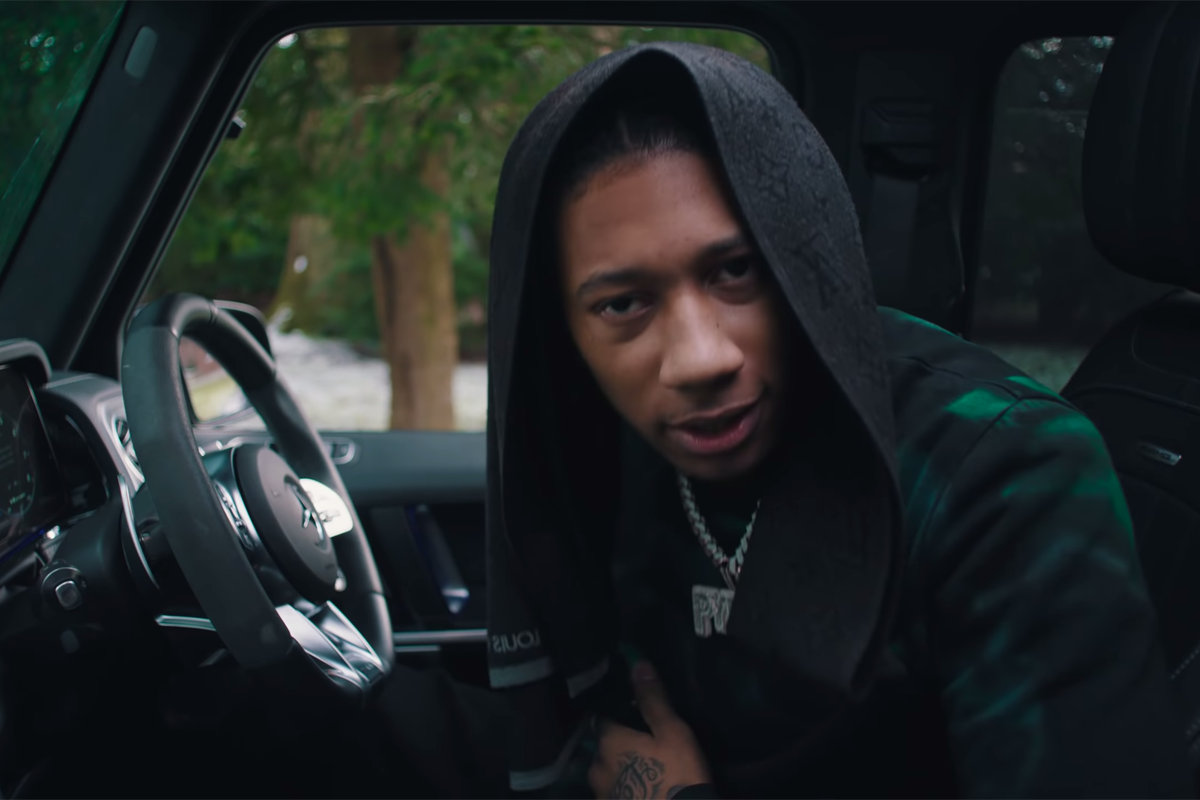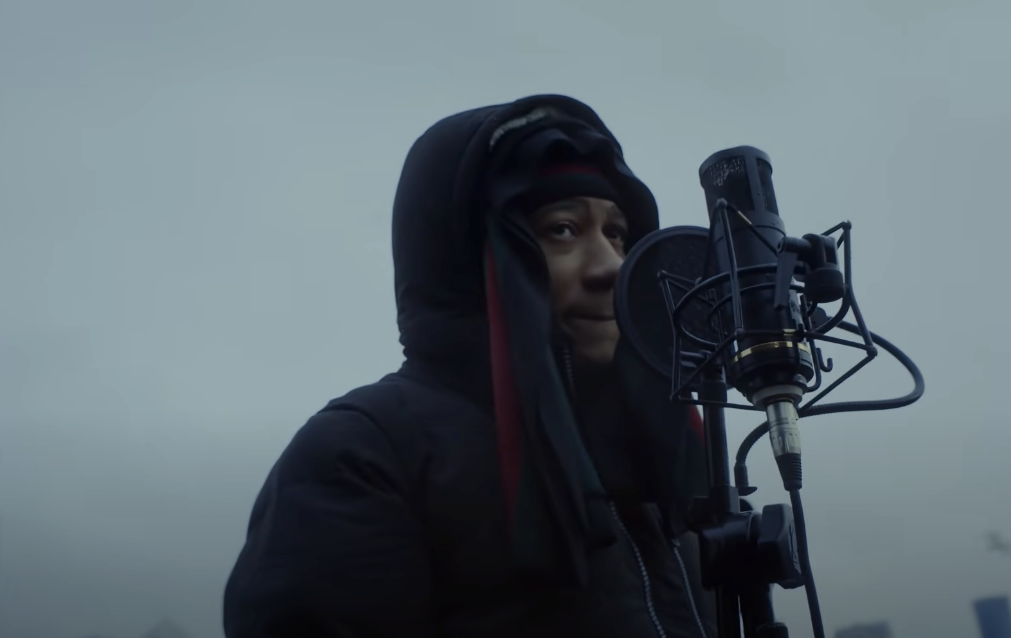Digga D: How the UK’s drill sensation is censored by the police
Drill’s sometimes violent lyrics have led police and lawmakers to accuse the genre of fuelling knife crime, which led to the police requesting the removal of 319 music videos from YouTube in 2020, says Ed Clowes

Your support helps us to tell the story
This election is still a dead heat, according to most polls. In a fight with such wafer-thin margins, we need reporters on the ground talking to the people Trump and Harris are courting. Your support allows us to keep sending journalists to the story.
The Independent is trusted by 27 million Americans from across the entire political spectrum every month. Unlike many other quality news outlets, we choose not to lock you out of our reporting and analysis with paywalls. But quality journalism must still be paid for.
Help us keep bring these critical stories to light. Your support makes all the difference.
Digga D can’t explain how he lost the use of an eye while serving a prison sentence last year: not because he doesn’t want to, but because talking about what happened might get him sent back to jail.
The UK police scrutinise everything the 20-year-old musician says in public, whether in an interview or on a track.
In 2018, Digga D was sentenced to a year in prison for conspiracy to commit violent disorder, after a court case in which music videos by the masked rapper were presented as evidence. In sentencing Digga D, whose real name is Rhys Herbert, the judge also issued an order banning him from releasing tracks that describe gang-related violence.
He must notify the police within 24 hours of releasing new music and provide them with the lyrics. If a court finds that his words incite violence, he can be sent back to prison; parole conditions also limit what he can say publicly about his past.
So when asked, in a Zoom interview, about how he lost the sight in his eye, Digga D can only shrug.
Digga D is a leading voice in Britain’s drill scene, a sub-genre of hip-hop featuring eerie piano melodies layered over droning bass lines, and lyrics portraying life in some of the country’s most deprived neighbourhoods. Arising in Chicago, drill started to take on a new life in London in the mid-2000s, fusing with the city’s grime and garage sounds and helping to drive offshoot scenes in places as disparate as Brooklyn, New York, and Brisbane, Australia.

But drill’s sometimes violent lyrics have led police and lawmakers to accuse the genre of fuelling knife crime, which is currently at a 10-year high in England, according to government figures.
Like Digga D, some of the UK’s most popular drill artists have found themselves on the wrong side of the law, and their lyrics reflect their experiences of gang life, criminal justice and time behind bars.
Sentencing orders, like the one banning Digga D from rapping about violence, have also been handed to other drill artists. Introduced in 2014 and known as criminal behaviour orders, the measures give judges broad powers to regulate a convicted criminal’s life, such as by banning them from certain neighbourhoods or by preventing them from meeting former associates. Judges have also used the orders to control some musicians’ lyrics, arguing that when rappers brag about attacks on rivals, it stokes street tensions.
In January 2019, for example, a London judge sentenced musicians Skengdo and AM to nine months in prison for breaking a criminal behaviour order by performing a song with lyrics including a list of gang members who had been stabbed.
Enjoy unlimited access to 100 million ad-free songs and podcasts with Amazon Music
Sign up now for a 4 month free trial (3 months for non-Prime members)
Enjoy unlimited access to 100 million ad-free songs and podcasts with Amazon Music
Sign up now for a 4 month free trial (3 months for non-Prime members)
Rebecca Byng, a spokesperson for the London police’s violent crime unit, says in an email that criminal behaviour orders have a wide-ranging scope, and go beyond addressing lyrics which incite violence, adding that they are an important tool to steer young people away from violence.
“We are not targeting music artists, but addressing violent offenders,” she says.
Yet the London police has recently stepped up its efforts to remove drill music videos from YouTube.
In 2020, the video platform removed 319 music videos at the force’s urging, according to a police report obtained through a Freedom of Information request. That is more than twice the number it took down in 2019. In total, YouTube has removed more than 500 music videos over the past three years, the report says.
Keir Monteith, a criminal defence attorney based in London, is advising a government-funded research project studying how rap lyrics are used as evidence in court. He says that in some ways, the authorities’ treatment of drill recalls the heyday of punk in the 1970s when police shut down concerts and the BBC banned a hit single by the Sex Pistols.
But if punk artists were treated harshly, drill rappers have it even worse, Monteith says. The efforts of the criminal justice system are “focused, worryingly, on a particular set of our society, which is young black lads,” he notes. “That’s the real concern here.”
Lyrics that deal with life behind bars have long been defining features of American hip hop, but they are relatively new preoccupations for British rappers. As a growing number of drill artists fall foul of the criminal justice system, however, those themes are starting to trickle through.

In a recent freestyle posted to YouTube, Digga D raps about using his jail kettle to boil canned tuna; and Headie One, another London-based drill rapper, describes using cookies to make a birthday cake in prison in “Ain’t It Different”, a song that reached No 2 in the UK singles chart this summer.
Potter Payper, a 25-year-old drill musician, was incarcerated on drug-related charges when he wrote much of his most recent album, Training Day 3. He has been in prison 14 times, and, like Digga D, his music videos have formed part of the evidence used to convict him.
During his most recent custodial sentence, Payper initially wasn’t writing music or looking after himself, he says in a phone interview. But a turning point came one evening in June 2019.
Stormzy, perhaps Britain’s most commercially successful rapper, was performing on the main stage at Glastonbury Festival, and Payper could hear fellow inmates in nearby cells listening to the rapper’s performance. After Stormzy named him onstage as one of his influences, the other prisoners started banging on their doors, yelling Payper’s name. After that, he wrote nearly 30 new songs, he says.

How Digga D lost the use of his eye – the story he is so hesitant to talk about – can be found in prison records. He was stabbed with a blade fashioned from a tuna can, according to an official at the Ministry of Justice who is not authorised to publicly discuss the matter and who spoke on the condition of anonymity. Cecilia Goodwin, Digga D’s lawyer, says that the rapper has been struggling with post-traumatic stress disorder after the attack.
But much of Digga D’s experience remains hidden, for now. “There’s more in my heart that I would like to speak about and show,” he says. He might get to do that with music when the court order expires, in 2025.
©2021 The New York Times
Digga D and AJ Tracey’s new single “Bringing It Back” is out now. His new mixtape, Made In The Pyrex, is out 26 February


